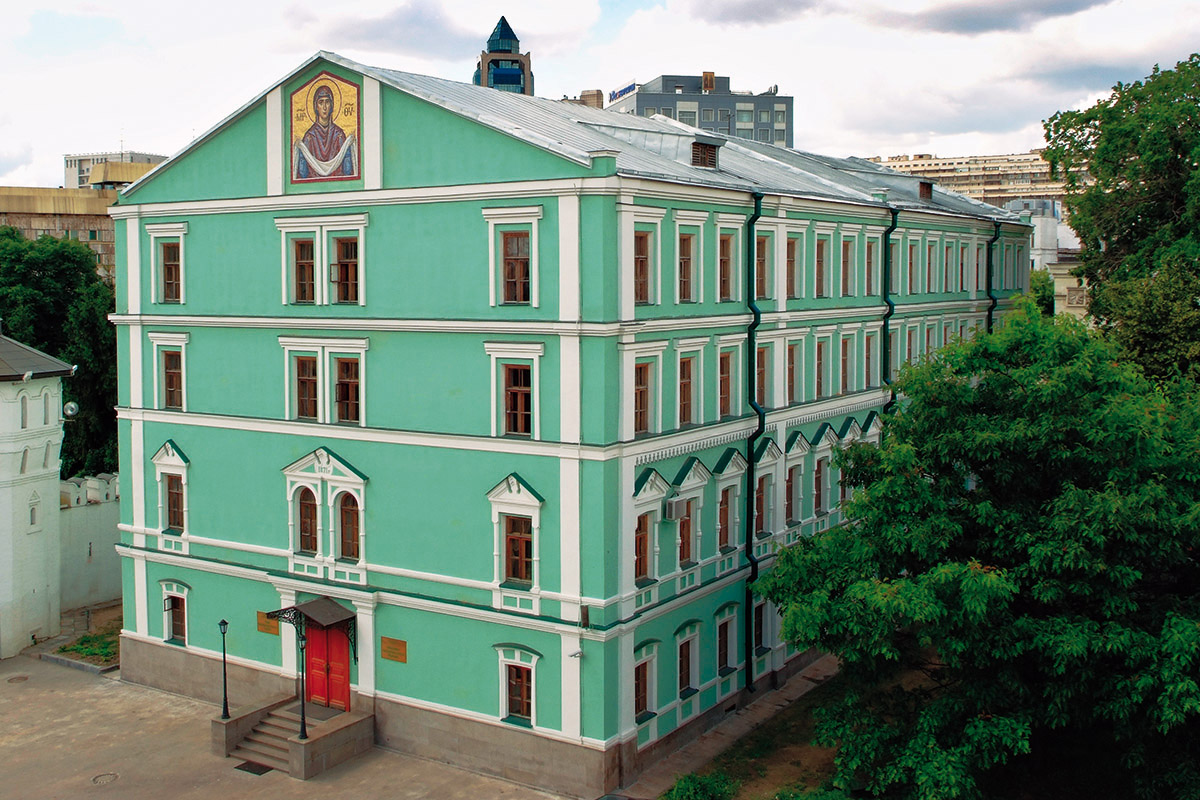Historical background

The Department for the External Church Relations of the Moscow Patriarchate is an all-important Synodal department of the Russian Orthodox Church.
The DECR was established by the Holy Synod of the Russian Orthodox Church on April 4, 1946 when the development of the external work of the Russian Orthodox Church persistently called for creating a special church body that could ensure the stable organization of this important aspect of church life.
2009
Metropolitan Hilarion of Volokolamsk, chairman of the DECR since 2009
The Holy Synod by its decision of March 31, 2009, appointed Bishop Hilarion of Vienna and Austria (now Metropolitan of Volokolamsk, vicar of the Diocese of Moscow) as chairman of the Department for External Church Relations of the Moscow Patriarchate.

At the same time, some DECR functions were transferred to the newly formed Department for the Church-Society Relations which was charged with maintaining relations with state legislative bodies, political parties, professional and creative unions and other institutes of civil society in the canonical territory of the Moscow Patriarchate, while the missions, church representations, monasteries and patriarchal parishes, which earlier were in the jurisdiction of the DECR, were transferred to the direct subordination to the Patriarch of Moscow and All Russia, and to help the Patriarch to administer institutions abroad an appropriate Secretariat was established. The branch of the Moscow Theological Academy post-graduate school, which had functioned under the DECR, was transformed to the Ss Cyril and Methodius Institute of Post-Graduate and Doctoral Studies.

The Department for External Church Relations maintains relations of the Russian Orthodox Church with Local Orthodox Churches, non-Orthodox churches and Christian associations, non-Christian religious communities, governmental, parliamentary, public organizations abroad, inter-governmental, religious and public international organizations.

The duties of the Department for External Church Relations are to give information to His Holiness the Patriarch and the Holy Synod about events and activities taking place outside the Russian Orthodox Church and affecting her interests, to draft church-wise documents and resolutions affecting the sphere of inter-Orthodox, inter-Christians, interreligious, international and other issues included in the terms of reference of the Department.
1991
1981
Metropolitan Filaret (Vakhromeyev) of Minsk and Byelorussia
Metropolitan Filaret had the honour to lead the Department for External Church Relations of the Moscow Patriarchate for a long period of the Russian Orthodox Church’s preparations for the celebration of the Millennium of the Baptism of Rus’ and at its very solemnity. His Eminence Filaret was the chairman of the Department from 1981 to 1989.

The Department for External Church Relations led by Metropolitan Filaret made a contribution, exceptional in its volume, complexity and importance, to the process involved in the celebration of the great jubilee in June 1988. The celebration of the Millennium of the Baptism of Rus’ awakened the historical memory of the people living in the Soviet Union and became a nation-wise event as a strongest impetus for the restoration of the Russian Orthodox Church’s due pace in the life of society and for the gradual revival of the ages-old traditions of her service and witness to the people of God.
1972
Metropolitan Juvenaly (Poyarkov) of Krutitsy and Kolomna

From 1972 to 1971 the post of the chairman of the Department for External Church Relations of the Moscow Patriarchate was occupied by Metropolitan Juvenaly (Poyarkov) of Krutitsy and Kolomna, who led the DECR’s work with commitment to the task entrusted to him, the knowledge of problems and assiduity.
1960
Metropolitan Nikodim (Rotov)
From 1960 to 1972 the Department for External Church Relations of the Moscow Patriarchate was headed by Metropolitan Nikodim (Rotov) of Leningrad and Novgorod, who combined the richness of ideas so needed by the Church with resolution and persistence in their implementation.

Metropolitan Nikodim had to overcome tremendous difficulties caused by secular authorities, and he did it with fidelity to principles so characteristic of him. The external, especially international work of the Church in the years of persecution had an essential importance for preventing it from becoming broader, and making it impossible or difficult for the authorities to close and destroy monasteries and churches.

Seeking to appoint young bishops to sees abroad, he created opportunities for their consequent transfer to the canonical territory of the Church, as a result of which the episcopate of the Russian Orthodox Church became considerably younger and increased in number.
1946
Metropolitan Nikolay (Yarushevich)
Metropolitan Nikolay (Yarushevich) of Krutitsy and Kolomna led the Department for External Church Relations of the Moscow Patriarch from 1946 to 1960.
This period defined in many ways the nature of the Russian Orthodox Church’s external relations at the present stage by deepening the traditional forms of inter-church relations and initiating a number of new areas in this sphere of church work.

It should be specially pointed out that in that period the peacemaking activity of the Church, her first contacts with public organizations led her gradually out of isolation and built the first bridges with the state, the world of politics, science and culture.
